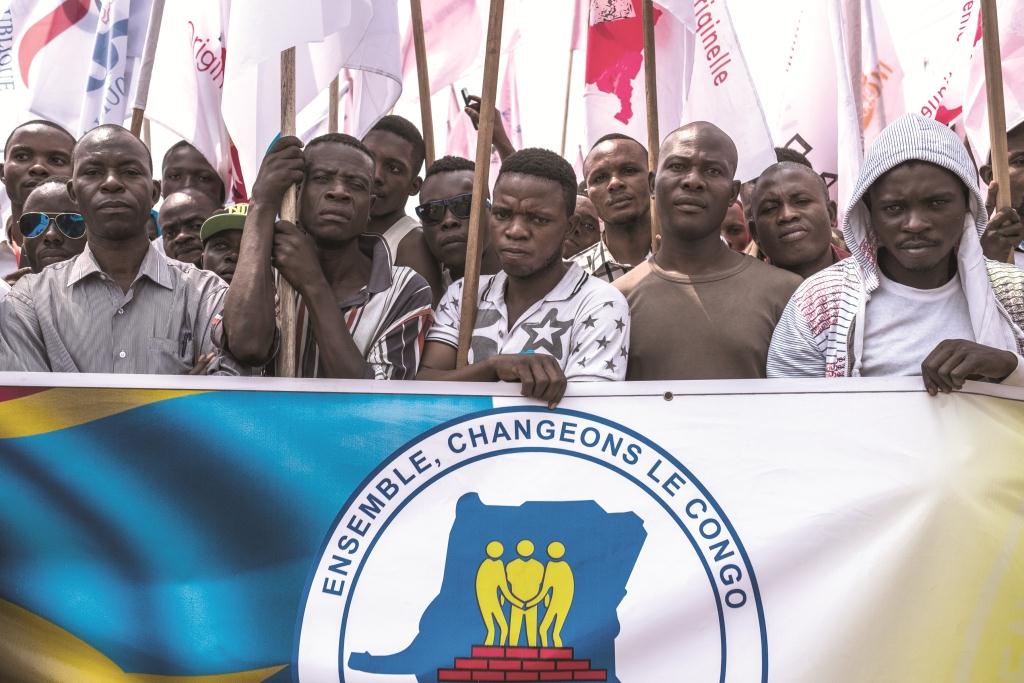As political unrest rattles one of the world’s biggest minerals producers, foreign investors in the Democratic Republic Congo (DRC) are in a quandary – to stay or pull out?
Peter Leon is a Johannesburg-based mining specialist who helps clients with mine development agreements and resources regulatory issues in Africa.
“It is now clear that President (Joseph) Kabila is stalling in terms of the next presidential and parliamentary elections, now only scheduled for April 2018. Given the concern this has created locally, foreign investors in the DRC obviously have to see how this develops. It is unclear what will happen next and what pressure the EU and the US will bring to bear on the Kabila administration given that the election will be 14 months late. There is growing dissatisfaction, in particular in Kinshasa, as to what is happening, as seen in the recent opposition protests. Uncertainty is never good for investment in any country,” says Leon, a lawyer at Herbert Smith Freehills.
“A lot of South African businesses are involved in various activities in the DRC. A lot of minerals in DRC are exported through South African ports so logistics are a key business for South African companies. The current situation is obviously challenging, but it doesn’t surprise me companies are still there and continue to do business as long as they are able to do so. Obviously if the situation becomes untenable, they will review their position. The fact remains that the DRC is still a good place to do business,” he says.
Thierry Naweji, the chairman of the DRC Chamber of Commerce in South Africa, maintains there’s no threat to business.
Loading...
“Every country has its own dynamics… we are going through challenges in the DRC based on election organization. I have to advise people to remain in the DRC because it going to be difficult to go back. Do your investment very wisely. This challenge is going to be behind us,” says Naweji.
“There was a budget allocation of $250 million per year for elections, put aside since 2011, so that they can reach a budget of $1 billion after five years. We had a war in the east region of the country. Here we are, looking for a political solution how to get out of the situation,” he says.
According to Naweji, the head of electoral commission, Corneile Nangaa, has said there will be no election in November due to a lack of money. The election is more likely to be held in December 2018, he says.
“The general feeling is not that good for the business at all. They are concerned because we haven’t seen a clear direction yet, whether we are going to have elections in November or not,” says Naweji.
Naweji admits business stability has been shaken; the markets reacted negatively to violence last year. As a result, many investors have not allocated budgets for their operations in the DRC next year, he says.
“Many South African companies on our list don’t know what will happen next year in DRC, so they can’t put in money into DRC. Mining is the biggest concern; we had Glencore suspending mining concessions late last year.”
Naweji is hopeful this too shall pass.
Nqubeko Sibiya, the spokesman for KPMG in South Africa, says companies are not suspending operations, they are monitoring security issues, especially for expatriates. He said feedback from their senior partner in the DRC, Jean-Yves Parant, confirmed smooth operations.
Siobhan McCarthy, of PPC Cement, says the companying is building a million-ton–per-year plant in Kinshasa.
“The plant remains on track to be commissioned by the end of 2016, with cement ready for sale early in 2017,” she says.
Simon Malone is a DRC veteran and retired founder of Metorex, a mining consortium founded in 1975 in South Africa. In 2004, Metorex entered into a joint venture to develop the Ruashi copper mine site in the DRC, and made substantial investments.
“It will be sad day for business if something happens, because the DRC has the world’s best copper deposits but doing business there is so difficult that proposed tax hikes for mining companies will stifle new investments,” he says.
Malone says besides exorbitant taxes, he is confident of the work ethic and the good faith of trade unions.
For now, it’s over to the legislatures to set a date for the elections.
Loading...
